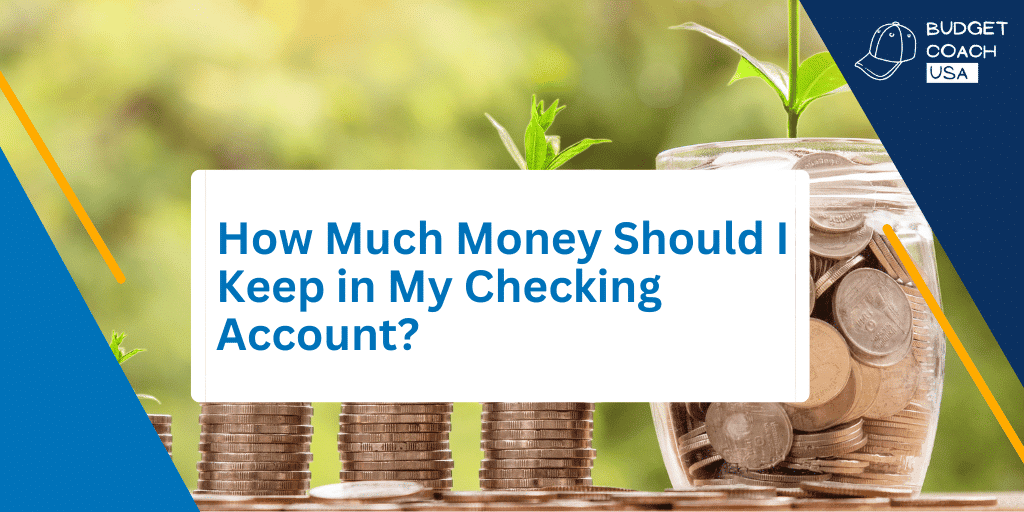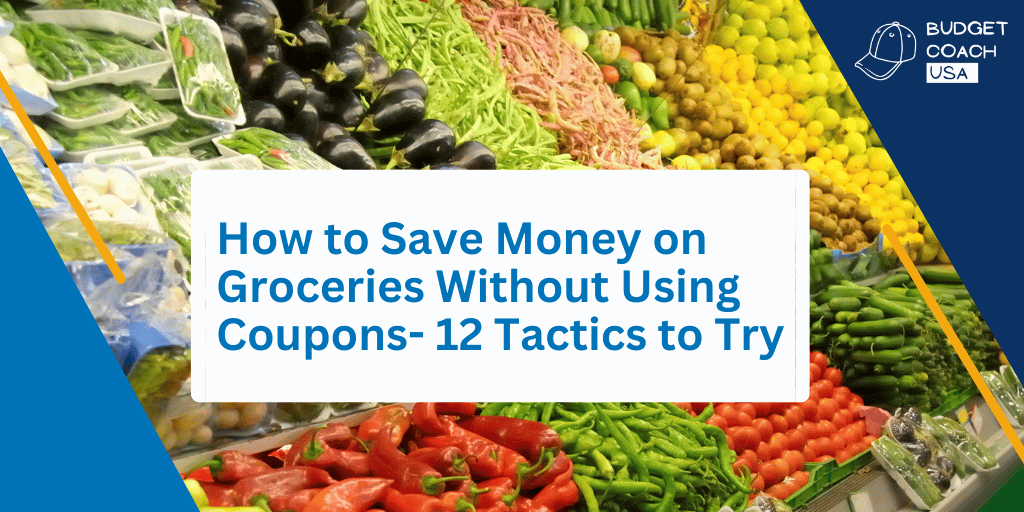Inflation is taking a bite out of everyone’s budget and it is probably more noticeable at the grocery store than anywhere else. However, there are ways to save money on groceries and combat inflation’s effect on your bank balance. Our family has had to look for ways to save at the grocery store over the years and has learned more than a couple of tricks to keep the grocery bill in check. However, the best way to save money on groceries is more simple than you think and you don’t need to be a coupon whiz to get started. If you’ll begin with this one simple strategy, you can start saving right away and cut your next grocery bill by as much as 25 to 30%.
What is the Best Way to Save Money on Groceries?
Buy Whatever is on Sale Then Go Home and Make Meals.
As simple as this sounds, it is our go-to for saving money on groceries. We have noticed over the years that most sales on groceries are at a minimum of 15% and sometimes up to 33% or more off the normal price with an average of around 25% off. This means that if you bought groceries that were on sale when you went to the store you would be saving $25 off of every $100 spent. When it is on sale, stock up and build a full pantry of shelf-stable and freezer items. In this way, when you get home you simply look in your pantry and make a meal. And you’ll be doing it with groceries you bought for about 25% off. You don’t always get what sounds good at the moment, but it is hands down the best way to save money on groceries. And once your pantry is fully stocked, you’ll be surprised at the variety of meals you can prepare for whatever occasion or preference the day brings.
Shelf Stable Items
- all canned goods
- cereals
- breakfast and protein bars
- flour, sugars, etc… (well sealed)
- Baking mixes such as brownie and cake mixes etc…
Freezable Items
- Butter. Yes, butter. We freeze it for up to 9 months and thaw in the fridge with no loss of quality.
- Meats
- Leftovers such as pasta etc…
- Cheese (block and shredded)
Seasons to Stock up for best deals
- Start of School Year: You can find the best sales on shelf-stable items like cereal, breakfast bars, lunch box items, and a lot more. Many brands are looking to gain new customers when school starts because this is when families are settling back into routines and they are offering big discounts to win your loyalty. Stock up on all shelf-stable items when school starts.
- Beginning of Holidays: Baking mixes, butter, and baking supplies are very competitively priced. This is usually when we buy at least 6 months of butter and freeze it.
The Second Best Way to Save Money on Groceries
Don’t Buy it Twice! Don’t Waste What You’ve Bought.
I am not over-exaggerating when I suggest the top tip for saving money on groceries: eliminate food waste. Stop and think for a moment about the amount of food you toss from your refrigerator because it has spoiled before being consumed or from your freezer because it has freezer burn. When you toss that food and replace it you have literally bought those meals twice! Don’t buy your food twice. Focus on the food already in your refrigerator or freezer and eat it before it goes bad. If you do this for a couple of months you will be shocked at how much your grocery bill is reduced. I hear you. What is left over doesn’t always sound good. But that isn’t the point of this blog. We are outlining the best way to save money on groceries and eating the food you have without wasting it will absolutely help with that. This is another excellent tool in your toolbox.

Additional Ways to Save Money on Groceries
Buy Generic or Store Brand
And last but not least, the buy generic recommendation. But don’t brush it off. Name brands spend a lot of money marketing their products and lifestyle to you and I know those generic products don’t have the same attractive packaging. However, oftentimes, the product difference is minimal and sometimes not really even noticeable. If you have not been in the habit of buying generic and you want to save money on groceries without using coupons then you really need to give generic products a try. Each week swap just one of your name brands for a generic. If it is a fail, then you know. But it might be a success and voila, you save money. Swap a name brand for a generic at least once each week. Before you know it, you’ll have a full list of items that you didn’t know could taste so great and they even saved you money.
Use Coupons
Don’t buy anything not on your list just because you have a coupon. But do use them if they are the least expensive option to satisfy your menu and shopping plan for the week. Coupons can help if you make them a part of your overall well-thought-out plan. But never if you use them to buy a product that is not on your list or that you could have gotten cheaper by buying generic.
Only Shop When You Have Time to Focus
Similar to leaving the kids at home if you can is shopping when you have time to focus. Avoiding trips to the grocery when you are rushed will help you execute your plan. This means that trips to the grocery during your lunch break may not be the best idea. To save money on groceries without using coupons you have to be able to stick to your plan. Budget for your groceries. Be intentional. Look for deals and stay focussed.
Pay Attention to Unit Prices
Pay attention to the unit price and packaging sizes of products. Many times a store will entice shoppers to buy larger packages of popular items, as these packages are often more heavily discounted than their small counterparts. However, when you do make sure that you are going to consume all of it before it spoils. Getting a larger size because it is cheaper per unit price is counter-productive you end up throwing some of it out. Comparing product quantities and prices will help you find the best deal. Don’t simply assume that buying bigger is always better; check the per-unit cost before you check out to make sure you’re getting the best bang for your buck.
Budget, Plan, and Don’t Buy Impulsively
If we are about anything here at Budget Coach USA we are all about a budget. A budget is the pillar of financial control. Without one, you will always be wondering where your money went, instead of knowing. So if you have a well-planned budget, on paper, on purpose at the beginning of the month you will be much better able to save money on your groceries without using coupons. Stick to it. Determine before you go that you are not going to purchase outside of your budget with impulse buys or things that look good at the moment…eh um because you went on an empty stomach! Stick to your budget. It will make your life better and make you better at life.
7 Steps to Financial Wellness
- Save a starter emergency fund of $1,000 as fast as you can.
- Pay off your debt. Start by listing all of your debts except for your mortgage. Put them in order by balance from smallest to largest—regardless of interest rate. Pay minimum payments on everything but the little one. Focus on that one until it is gone. Then take that payment and put it toward the second-smallest debt, making minimum payments on the rest. That’s what’s called the debt snowball method, and you’ll use it to knock out your debts one by one until you are debt-free except for the house.
- Save a full emergency fund of 3 to 6 months of household expenses
- INVEST 15% of your gross income toward retirement.
- CONTRIBUTE to children’s college education fund.
- PAY off the house early.
- Build wealth and be generous.
Note: Steps 4,5 & 6 are worked on at the same time.







